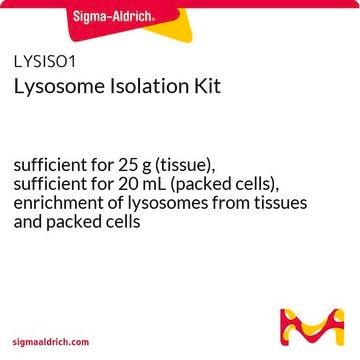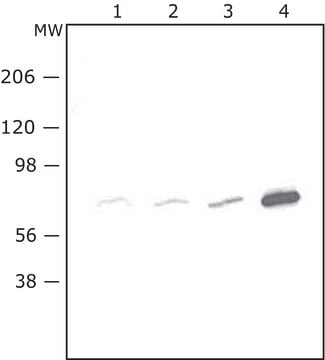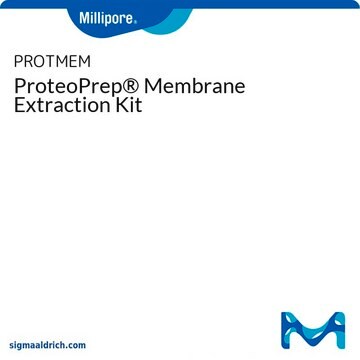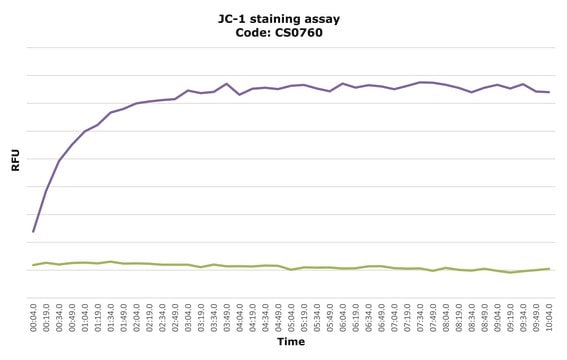ER0100
Endoplasmic Reticulum Isolation Kit
isolation of intact ER from mammalian soft tissues and cultured cells
Synonym(s):
ER isolation kit
About This Item
Recommended Products
General description
Application
Features and Benefits
- Specially formulated extraction reagents for research scale applications - save time and minimize waste
- Includes a calcium chloride solution - for quick and simple precipitation of rough ER without need for ultracentrifugation
- Produces functional, intact organelles - resulting ER are suitable for functional studies, lipid metabolism, and protein profiling
- Compatible with products for structure confirmation - easily confirm intactness with companion kit test for cytochrome C reductase (CY0100)
- Can be used to isolate ER from soft animal tissues and cultured cells
related product
Signal Word
Warning
Hazard Statements
Precautionary Statements
Hazard Classifications
Eye Irrit. 2
Storage Class Code
10 - Combustible liquids
WGK
WGK 1
Certificates of Analysis (COA)
Search for Certificates of Analysis (COA) by entering the products Lot/Batch Number. Lot and Batch Numbers can be found on a product’s label following the words ‘Lot’ or ‘Batch’.
Already Own This Product?
Find documentation for the products that you have recently purchased in the Document Library.
Customers Also Viewed
Articles
Centrifugation separates organelles based on size, shape, and density, facilitating subcellular fractionation across various samples.
Centrifugation separates organelles based on size, shape, and density, facilitating subcellular fractionation across various samples.
Centrifugation separates organelles based on size, shape, and density, facilitating subcellular fractionation across various samples.
Centrifugation separates organelles based on size, shape, and density, facilitating subcellular fractionation across various samples.
Our team of scientists has experience in all areas of research including Life Science, Material Science, Chemical Synthesis, Chromatography, Analytical and many others.
Contact Technical Service
















